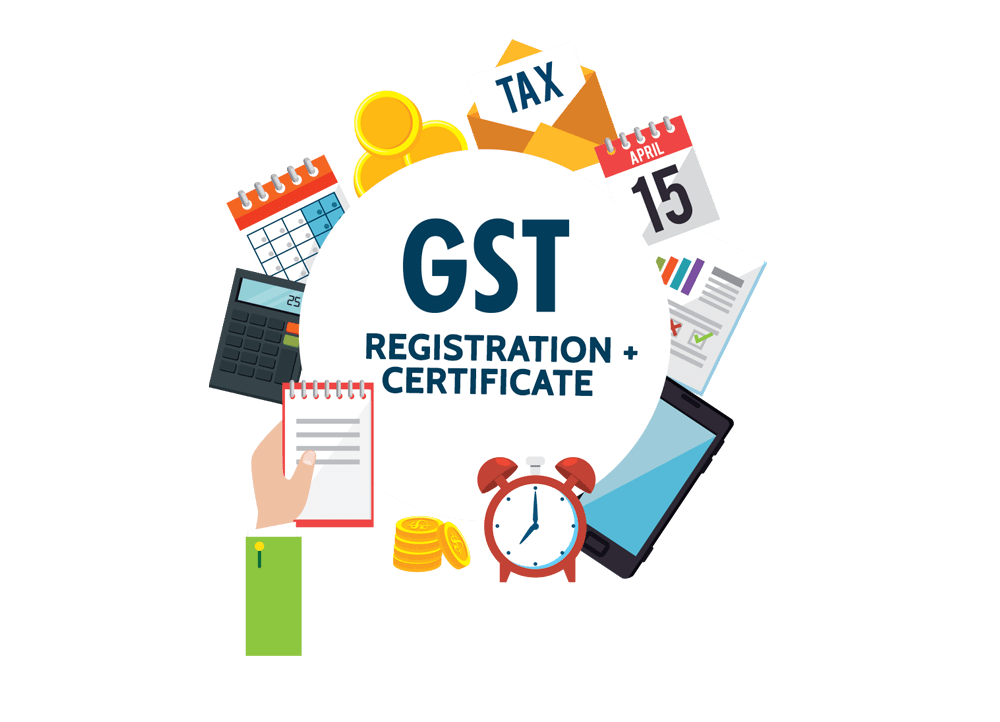Contrast and Choose the very best GST Registration Services in Singapore for Your Needs
Contrast and Choose the very best GST Registration Services in Singapore for Your Needs
Blog Article
From Begin to End Up: The Ultimate Roadmap to GST Registration for Businesses Looking For Financial Security
Browsing the intricacies of Item and Services Tax (GST) enrollment is a vital step for organizations making every effort for economic security. Damaging down the roadmap right into convenient actions can enhance the enrollment trip for organizations looking to boost their economic standing.
Recognizing GST Basics
Digging into the fundamental principles of Goods and Solutions Tax (GST) is necessary for getting a comprehensive understanding of its ramifications on companies and the economy. GST is a value-added tax obligation imposed on most items and solutions for domestic consumption. It has replaced numerous indirect taxes that existed in the pre-GST era, improving the tax framework and enhancing ease of doing company in India. Under the GST system, both services and items are strained at a certain price, which is identified based on their classification. If their yearly turnover goes beyond the threshold limitation set by the government, services are required to sign up for GST. Input Tax Obligation Credit Rating (ITC) is a substantial function of GST, permitting organizations to assert credit report for taxes paid on inputs, minimizing the general tax burden. Understanding the fundamentals of GST is vital for companies to abide with tax regulations, manage their funds efficiently, and add to the country's financial development by participating in a clear tax obligation system.
Eligibility Requirements for Registration
As of the present regulations, the threshold limitation for GST registration is a yearly aggregate turnover of 40 lakhs for organizations operating within a state, other than for special classification states where the limit is 20 lakhs. Additionally, certain services are called for to register for GST irrespective of their turn over, such as interstate providers, informal taxable persons, and organizations responsible to pay tax obligation under the reverse charge device. It is important for organizations to extensively analyze their turn over and purchase kinds to determine their GST registration responsibilities properly.
Documents Required for Enrollment
Having satisfied the eligibility standards for GST enrollment, services have to currently ensure they have the requisite files in place to wage the enrollment procedure successfully. The documents required for GST registration typically consist of evidence of organization constitution, such as partnership deed, enrollment certificate, or unification certification for various kinds of services. In addition, organizations require to give documents establishing the principal workplace, such as a rental contract or electricity bill. Frying pan card of the business, in addition to the identification and address evidence of promoters/partners/directors, are essential for verification functions. Savings account statements, along with canceled cheques or a copy of the bank passbook, are needed to validate the financial details supplied throughout registration. Additionally, organizations have to have electronic trademarks ready for the licensed signatory. Making sure all these records are organized and readily available will certainly accelerate the GST registration procedure, allowing organizations to follow tax guidelines seamlessly.
Step-by-Step Enrollment Process
Starting the GST registration process involves a collection of organized steps to make sure a certified and seamless registration for businesses. The first action is to check out the GST site and submit the enrollment form with accurate details of business entity. Following this, the candidate receives a Momentary Reference Number (TRN) which is used to return to the application procedure if it's not completed in one go.
Following, all required papers based on the list provided by the GST portal requirement to be uploaded. These files typically include proof of organization enrollment, identification and address evidence of marketers, monetary declarations, and business entity's PAN card.

Post-Registration Compliance Standards

Conclusion
In verdict, services seeking economic stability must recognize the basics of GST, meet eligibility standards, collect essential records, comply with the step-by-step registration process, and adhere to post-registration standards - Best GST registration services in Singapore. By sticking to these steps, companies can guarantee conformity with tax laws and maintain financial stability in the future
Additionally, particular organizations are called for to sign up for GST irrespective of their turnover, such as interstate vendors, casual taxable individuals, and organizations responsible to pay tax under the reverse fee mechanism.Having met the qualification criteria for GST enrollment, businesses have to now guarantee they have the requisite records in area to proceed with the enrollment procedure efficiently. The papers needed for GST enrollment typically include proof of service constitution, such as partnership action, registration certificate, or unification certificate for various types of businesses. Additionally, businesses need to supply records establishing the official site primary place of company, such as a rental contract or electrical power bill.Beginning the GST enrollment procedure involves a collection of structured actions to make sure a compliant and seamless registration for businesses.
Report this page